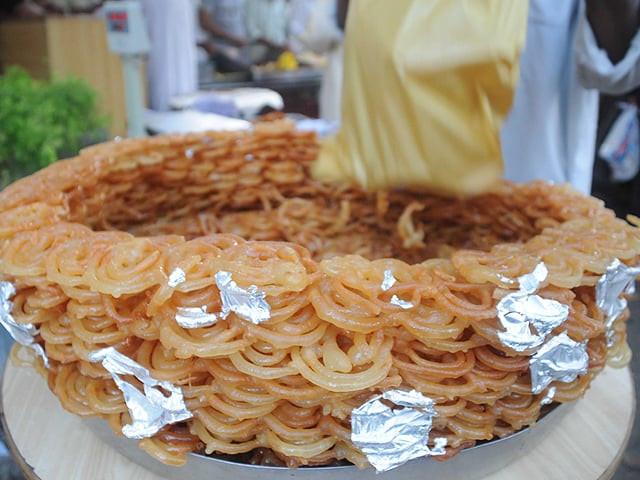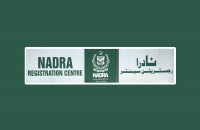City teams raid markets in special Ramazan drive
CDGL has launched a special Ramazan drive to check hygiene, flood quality and prices at eateries.

City teams raid markets in special Ramazan drive
Inspection teams raided and handed fines to dozens of shops and restaurants in Anarkali and Gulberg on Tuesday, actions that the shopkeepers said amounted to harassment.
District Officer (Food) Dr Masood Ashraf told The Express Tribune that District Coordination Officer (DCO) Sajjad Bhutta had given formal approval for the formation of three teams, consisting of two or three food inspectors each.
The DCO and Commissioner will receive daily reports from the inspection teams and Chief Minister Shahbaz Sharif will be briefed on the drive, he said.
Muhammad Ayub, chief food inspector, said that most adulterated products had a high profit margin and this is why they were widespread. He said price control magistrates were monitoring the prices of products that the government subsidises. The food inspection teams started the drive with visits to Gulberg and Old Anarkali, including Food Street. They checked Karachi Sweets, National Foods, International Sweets, Riaz Sweets, Afzal Samosas, Haji Jameel Samosas, Ramazan Samosa Corner, Haji General Store, Nadeem General Store, Burger Point, Expo Eatery and Memories. More than 50 vendors selling substandard samosas, katchoris, dahi barray and pakoras were issued tickets.
The CDGL also fined Makro, Pace and 21 other shops for selling daily commodities at high prices. Pace in Model Town was fined Rs15,000, Makro in Model Town was fined Rs30,000 and the others were fined between Rs1,000 and Rs7,000. The raids were by price control magistrate Saleha Saeed, accompanied by TOR Faisal Shahzad and DO (Revenue) Zulfiqar Ghumman.
Zahid Mughal, a shopkeeper in Anarkali, said that they were being unfairly harassed. “What are we supposed to do when there is all this market manipulation and almost no market regulation?” he said. “The government is forcing us to sell commodities at prices fixed by its functionaries without giving the least attention to the supply position.”
Nazir Bhatti, a wholesaler in Akbari Mandi, said shopkeepers couldn’t fix prices for goods that came from abroad. “Many pulses and spices are imported from India, Australia, Turkey, China, other Far Eastern countries and even from South America. Obviously, the exchange rate and freight cost plus the local financial charges and transportation collectively affect the retail prices of these items,” he said.
He said that the prices of about three dozen items, including chilli powder, coriander, tea and milk, had not been stable for more than eight months. “How can we set prices for Ramazan’’?
Ghaus Muhammad, a shopper at Anarkali, said that so far Ramazan had been “a real test of endurance” because of price fluctuations. “The price controlling authorities have no vision, no capacity and no commitment to protect consumer interests,” he said.
He said the government should hire statisticians and analysts to keep people informed about the demand and supply of essential goods, and cut down the number of tiers in the supply chain between the producer and consumer.
Published in The Express Tribune, August 18th, 2010.



















COMMENTS
Comments are moderated and generally will be posted if they are on-topic and not abusive.
For more information, please see our Comments FAQ